“Make sure we're using the sticks only on our drums," one of the early childhood educators says as we approach the Sq'ewqéyl S'iwesá:ylhem Childcare Centre in Skowkale.
“Sticks up, drum sticks up!"
The sound of off-beat drumming fills the air as over a dozen children bang their drums, impatiently waiting to play a welcome song.
“We all know how to sing Éy Swáyel, what does Éy Swáyel mean? Good day! We're saying good day to everyone. Are you ready to sing?"
“Yeah!" the children yelled.
The First Nations Health Authority (FNHA) is at stop one of their three day tour of the Fraser Salish and Vancouver Coastal regions, taking with them a team from the Johns Hopkins Centre for Indigenous Health.
The FNHA is one of the Centre's partners in a project that will see the U.S.-based Family Spirit home-visiting program adapted to 20 new sites across the U.S., Canada, Australia and Aotearoa (New Zealand) as well as the future development of intergenerational play spaces.
The project, funded by the LEGO Foundation and dubbed the LEGO SPIRIT Project, is still in its early stages and so far, FNHA has selected four of five communities – one in each of the regions – to take part.
Family Spirit is a culturally tailored home visiting program delivered by community-based health educators as an Indigenous solution to support caregivers during pregnancy and early childhood. Intergenerational play spaces can range from playgrounds to play kits, toy busses and anything communities dream up.
The reason for the Centre for Indigenous Health's tour was to visit some of the communities selected for the LEGO SPIRIT Project who will be participating over the next 5 years.
They travelled to Skowkale, took a bus tour through the Fraser Salish and eventually wrapped up their tour in Lil'wat.
“This time together was rich with storytelling and visionary thinking for the future. Our Centre for Indigenous Health SPIRIT team is full of gratitude to have been in community and shared food and laughter in your beautiful lands and spaces of healing, wellness and learning," said Sophia Taula-Lieras, the project's director.
“We look forward to the continued partnership and shared learning through the LEGO SPIRIT Project."
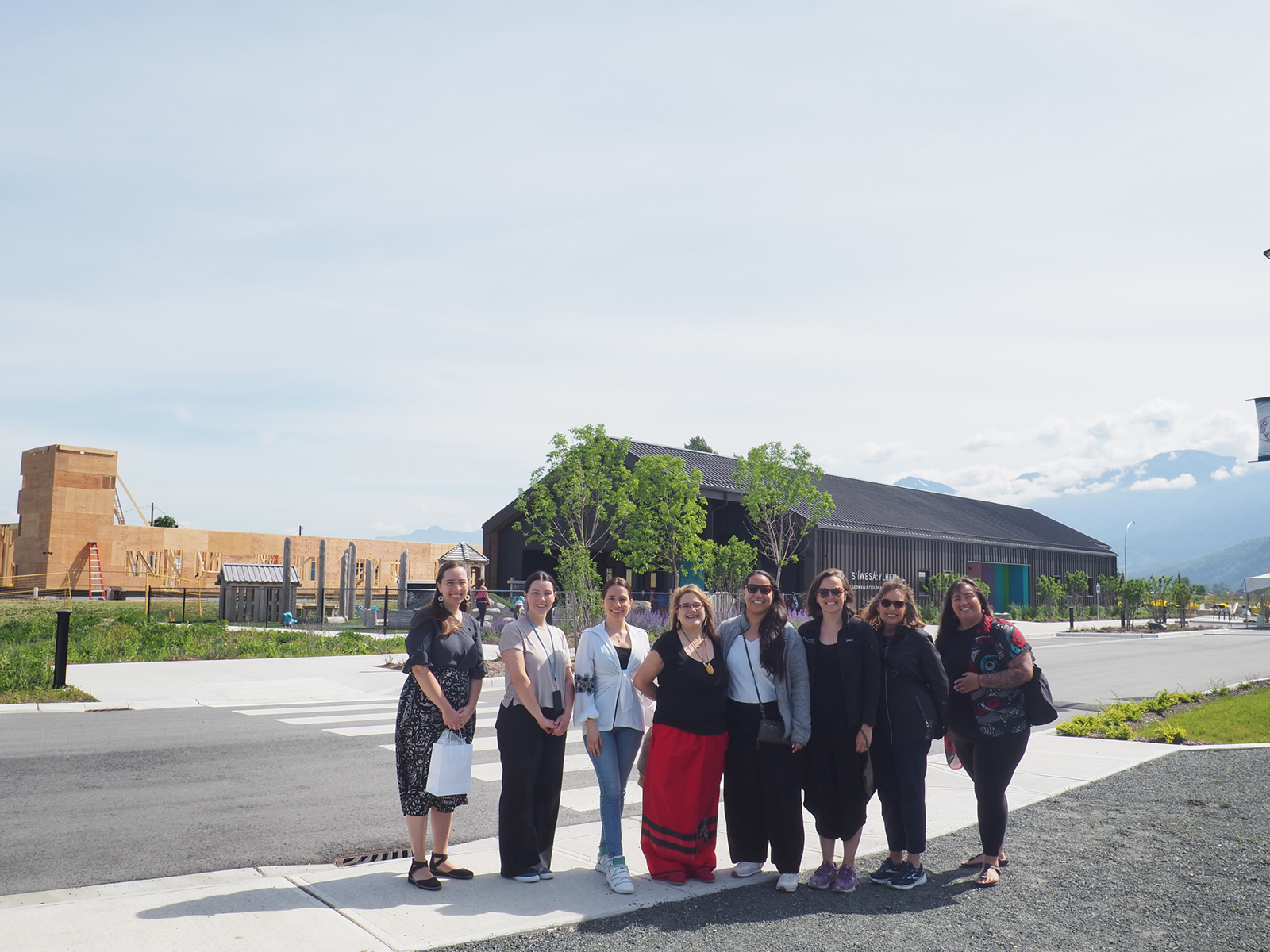
After arriving in Skowkale, the group was given a tour of the The'í:tselíya Health & Community Centre and grounds.
The The'í:tselíya Health & Community Centre serves to increase access to community, culture, recreation and health for the communities of Skowkale, Aitchelitz and Yakweakwioose. It proudly displays numerous works of art; in the main hallway hangs a river canoe made by Skowkale Chief Mark Point, masked figures stand on either side of the entry way to the gymnasium – originally coming from Skowkale's old building that was torn down several years ago.
The grounds include a new playground – which is said to have been missing from the community for 15 years – a place to dry cedar, meeting and events spaces and the Sq'ewqéyl S'iwesá:ylhem Childcare Centre.
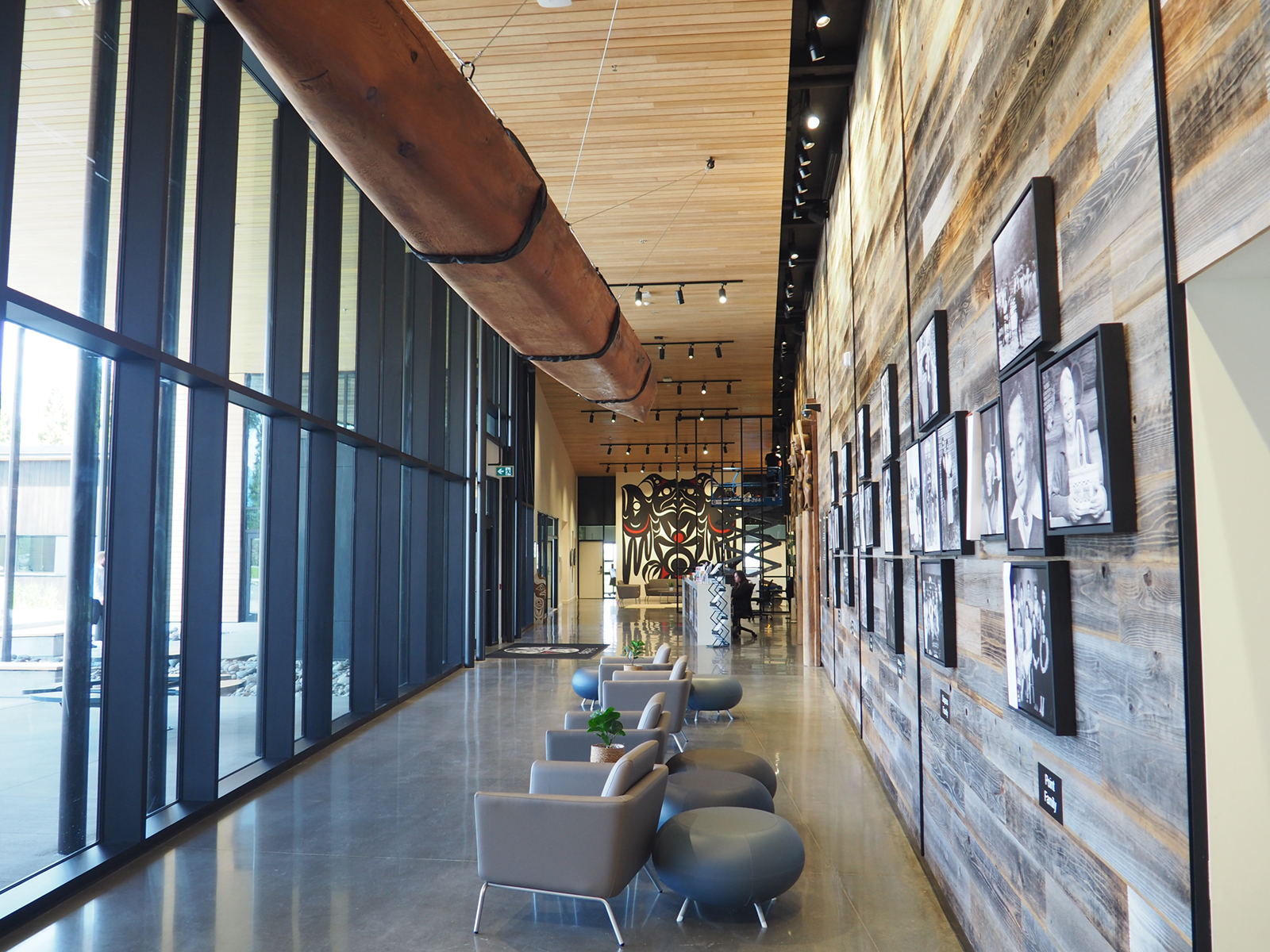
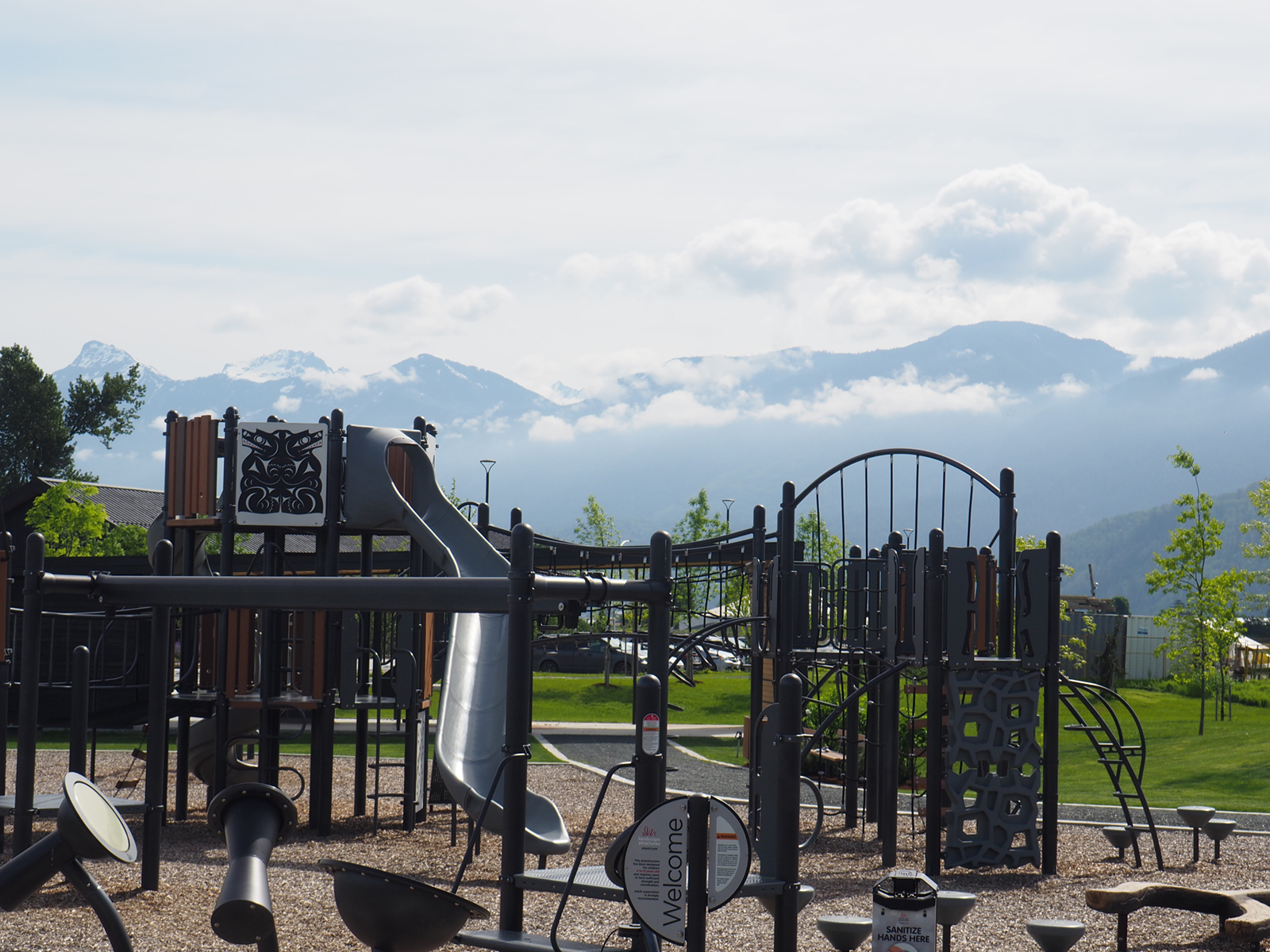
The tour through the Fraser Salish Region was led by Jay from Seabird Island who took the group from Harrison Hot Springs to Seabird Island, Hope, Yale and finally Boston Bar. Telling us the history of the route and stories along the way.
We visited the site of an old pit house, now the Telte-Yet Camp, where there is a totem pole erected to honour First Nations boys who were stolen from their homes during the 1858 gold rush.
In Yale we visited a transformer site and heard stories that have long been told throughout the region, finally wrapping up the day by taking Highway 99 to Lillooet, stopping quickly in Seton Lake before making our way to Pemberton.
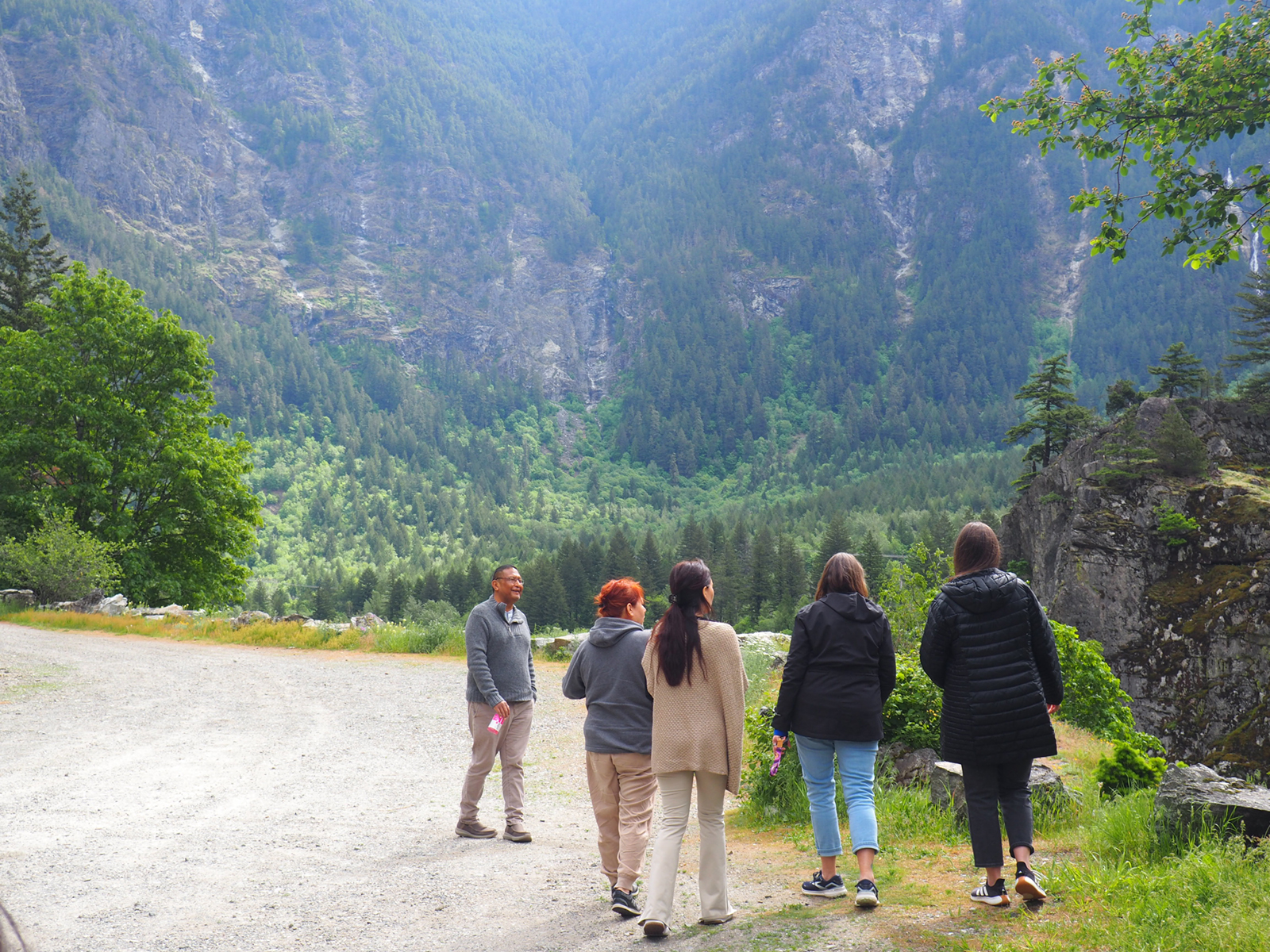
The following morning we drove to Lil'wat and visited Lil'wat Health and Healing, saw their new space which plays host to a permanent room for maternal and child health – something they had never had before – stopped by their daycare and spaces they rent out to health providers like dentists and other clinicians.
Health and Healing provides community and home health services as well as traditional healing to members of the Lil'wat Nation – they say one of their biggest priorities is that they meet community members “where they're at."
The pair of women who will be adapting the Family Spirit program met with the team from Johns Hopkins to discuss the projects reach and potential.
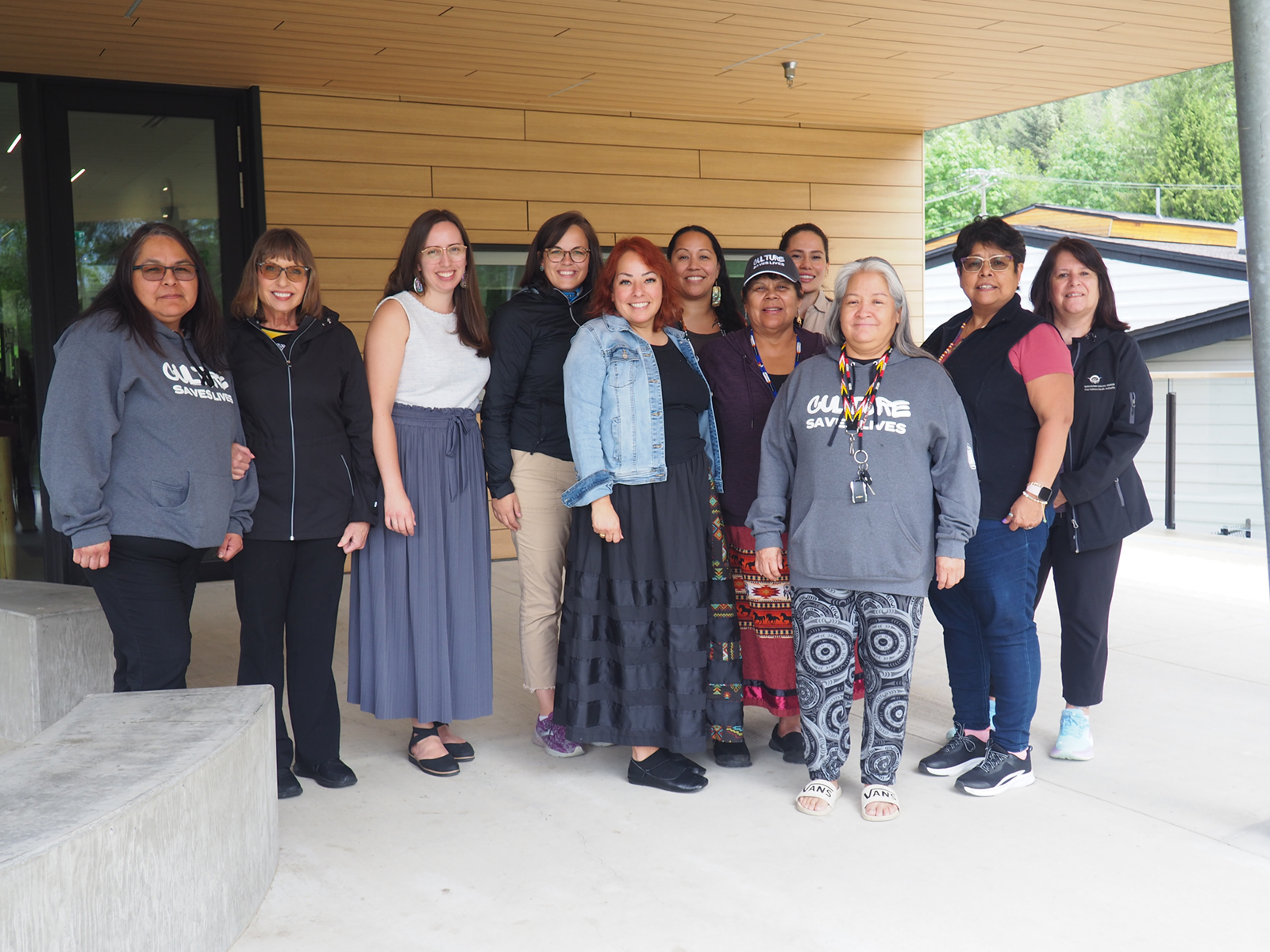
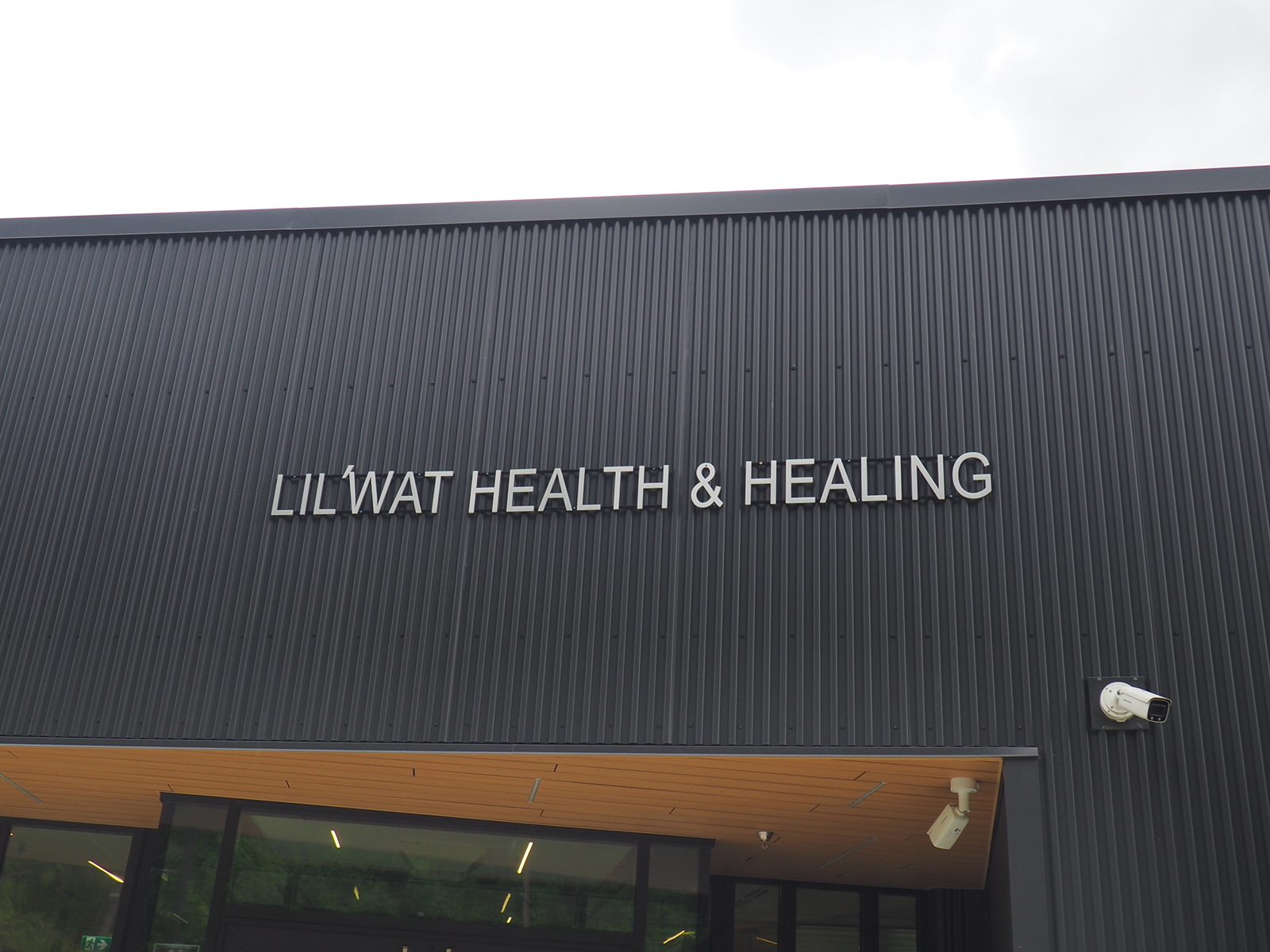
Still in its early stages, the FNHA has yet to adapt the Family Spirit
program in any of its chosen sites. Training and implementation support is
planned to take place in July and play spaces will be developed in year three.

